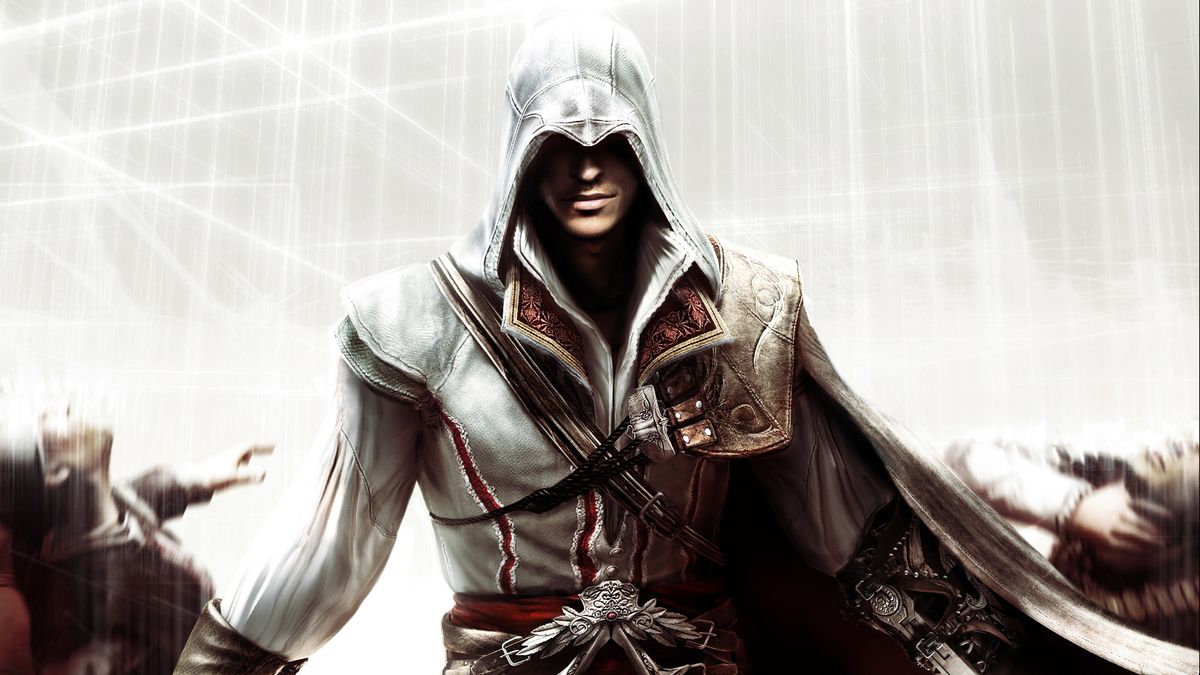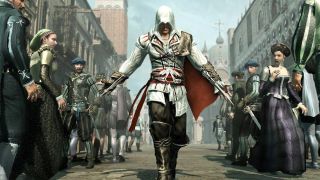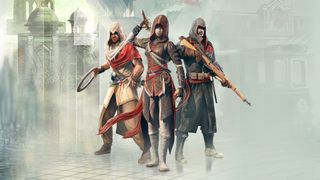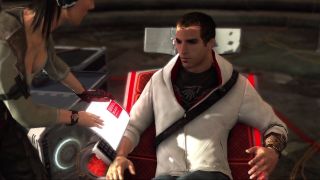Assassin’s Creed Netflix series: 7 time periods and historical settings we want to see
From Ancient Greece, to Feudal Japan, and beyond

An Assassin’s Creed Netflix series has been announced. Unlike The Witcher, which is very much tied to both its source material and the landmass known as The Continent, Assassin’s Creed has carte blanche to cherrypick from pretty much any point in human history.
The games – and wider media – have gone everywhere from Ancient Greece to Victorian London, all the way up the apocalyptic events of 2012. But, after the Assassin’s Creed movie and its jaunt to 15th Century Spain proved fruitless, it’s worth putting some more thought into time periods and historical settings that would not only make for a watchable TV show, but also provide opportunities to enrich and build upon the current Assassin’s Creed lore.
With that in mind, we’ve dusted off some maps, scoured the history books, and chosen seven places we’d love Netflix (and the Animus) to take us across the potentially multiple Assassin’s Creed Netflix series being lined up.
- Everything we know about The Witcher season 2
- The best Netflix movies to watch
Ancient Rome

Remember HBO’s Rome? The pre-Game of Thrones backstabbing and boning historical drama was rightly lauded for its mix of politics, powerful figures, and debauchery-filled backdrop. Throw some Templars and Assassins into the mix and you’ve got yourself a party.
Not only could the Assassin’s Creed series dip in and out of Rome’s greatest triumphs and defeats – including getting up close and personal with a handful of rulers – but it would also fashion a neat segue into the series’ overarching plot of the Pieces of Eden. The mythical artefacts that the Isu, the godlike predecessors of the human race left behind, could be a hard sell, but tucking one away in the Colosseum would at least kickstart the grandest story in human history.
Better still, it’s even possible this series could revolve around Aya, a lead figure Assassin’s Creed: Origins. She has a canonical past with Julius Caesar and is the sort of spunky, magnetic protagonist that would instantly draw viewers in.
Jerusalem, 1191

You can’t do an Assassin’s Creed game without Altair, right? The lead in the first Assassin’s Creed game introduced players to the eternal warring between Templars (the bad guys) and the noble, planet-saving Assassins. The Crusades setting might not work – and could prove to be too expensive – beyond one season, though it would undeniably be a neat way to throw in some fan service alongside one of the most bloody and brutal time periods in the past 2000 years. Just keep the eavesdropping scenes to a minimum, yeah?
Sign up for the Total Film Newsletter
Bringing all the latest movie news, features, and reviews to your inbox
Renaissance Italy

Another period pulled straight from the games, Renaissance Italy sees Ezio Auditore da Firenze overcome the death of his family in order to strike back at the heart of the Templars and – spoilers – lay the smackdown on a corrupt Pope.
Out of all the character arcs, his is undeniably the most epic, spanning several generations (and lovers) as well as meeting some of the most beloved people of his age, such as Leonardo Da Vinci and Machiavelli. Imagine Doctor Who with hidden blades and you’re on the right track.
What makes Renaissance Italy such an attractive proposition, though, is Ezio. The swaggering charm of the Italian would, much like Aya, be a perfect pathway to entice new viewers into what is, let’s be honest, a pretty dense word filled with lore any which way you look. They could even mirror The Crown and have different actors play Ezio at different stages of his life. Just one thing: dibs on Oscar Isaac for middle-aged Ezio. If only for the beard.
The Incan Empire

Of course, we’re not just tied to the games here. Close your eyes and pick a point in the tumultuous timeline of any century and you’re bound to be on to a winner. We’ve chosen the Incan Empire, not only for its relatively lack of representation across TV and film, but also for the potential for lavish sets, political intrigue, and the shadowy spectre of the Spanish conquistadors – who invade the region in the 16th Century – looming over.
As there aren’t any concrete links to the games or spin-offs to the Incan Empire, perhaps this is best suited to an experimental short animated series. Netflix has committed to those, too, and the Incan Empire – gods, myths, monsters, and all – would be a killer place to start.
17th Century Japan

Another untouched, and much-wanted, period that Assassin’s Creed fans are desperate to see is the Feudal Japan era. Ghost of Tsushima may have whetted the appetite somewhat, but we’ve kept our katanas readied in anticipation for an Assassin’s Creed series to go there at some point.
While there are many, many periods and Emperors to zero in on, perhaps one of history’s most overlooked – and interesting – rulers is Go-Mizunoo, who ascended to the throne at the tender age of 16 and ended up gifting the throne to his daughter.
His reign was mostly uneventful, bar a series of fires in Kyoto that could easily be weaved into a Templar plot, though that hasn’t stopped Assassin’s Creed with liberally sprinkling in a few more historical heavy hitters and subterfuge to keep things interesting. Besides, the Templars and Assassins kept to the shadows for a good reason – even in the Land of the Rising Sun.
World War 2

From Captain America, to Indiana Jones, to Hellboy, there’s always been a fascination with the occult and myths in World War 2. Dial that up to 11 with a Piece of Eden floating around, perhaps in Resistance-led France or in the depths of wartorn Berlin, and you’ve got all the makings of a series that is A) familiar to audiences (who doesn’t love a good war drama?) and B) packed with hateful and heinous figures which the Assassins can gleefully bump off. There's even a comic book, Conspiracies, to draw from.
Modern day

Desmond’s modern-day sections in the Assassin’s Creed series may have been met with groans every time players booted them up, but they undoubtedly served a purpose. It’s likely they will return again, too, as the framing device upon which a test subject gets plugged into the Animus.
However, it’s the world around Desmond that is most intriguing. The games only poked around at the edges of what the Assassin’s Creed contemporary world looks like. Bringing in real-world protests, the backlash against the 1%ers, and a world ravaged by pandemics and political watershed moments could make for an engaging and ultimately timely series – not bad going for a show that could end up spanning centuries.
Even the Animus can't bring the Assassin's Creed series to us any sooner. While you wait, check out the best Netflix shows.
I'm the Senior Entertainment Writer here at 12DOVE, focusing on news, features, and interviews with some of the biggest names in film and TV. On-site, you'll find me marveling at Marvel and providing analysis and room temperature takes on the newest films, Star Wars and, of course, anime. Outside of GR, I love getting lost in a good 100-hour JRPG, Warzone, and kicking back on the (virtual) field with Football Manager. My work has also been featured in OPM, FourFourTwo, and Game Revolution.
Most Popular


